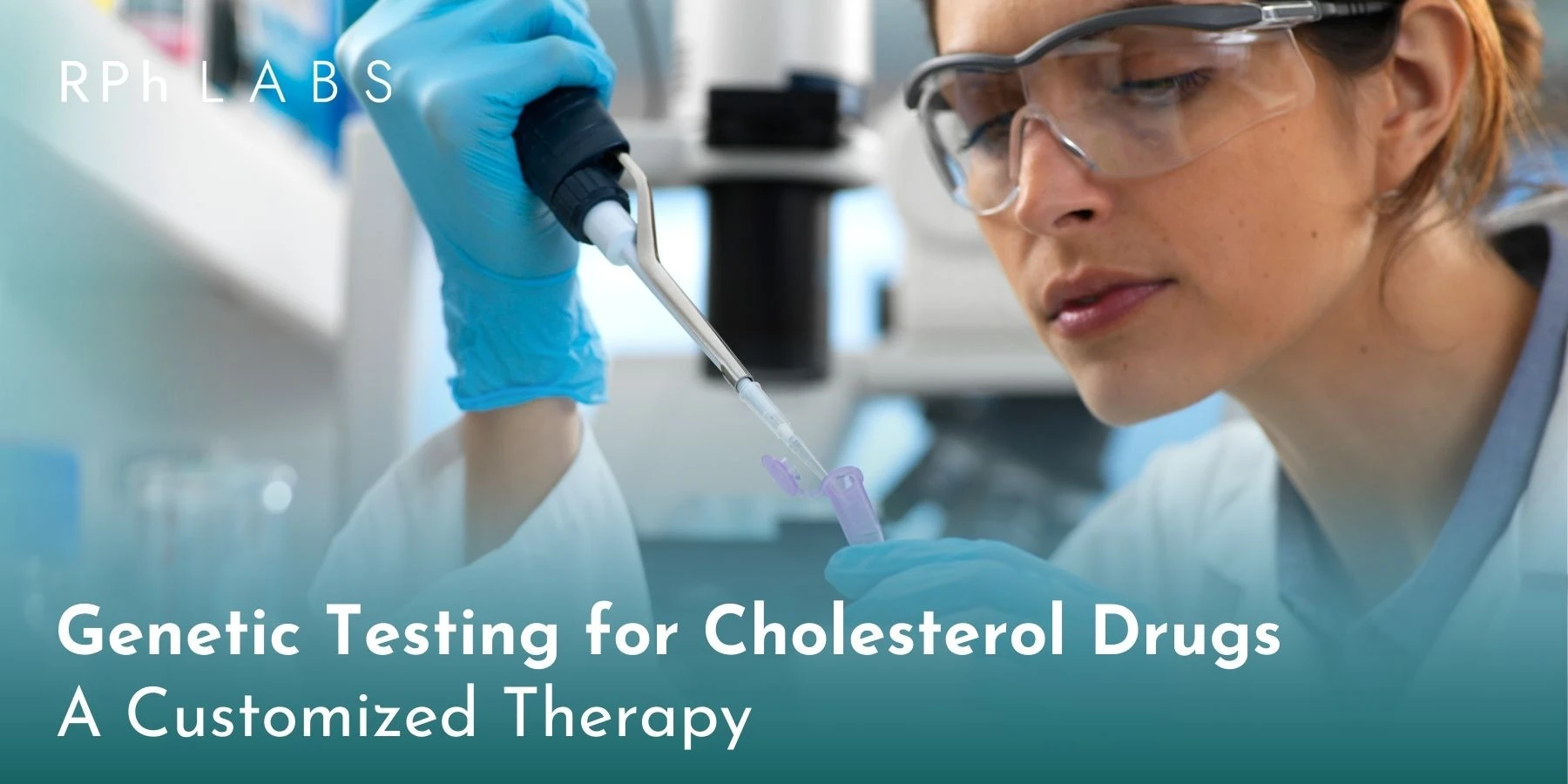
Genetic Testing for Cholesterol Drugs: A Customized Therapy
Advances in the PGx Gene test bring a revolution to health care by tailoring medical treatments to individual genetic profiles. One area where the potential has seemed most promising is within the management of high cholesterol by using personalized drug therapy. Although statins remain the primary treatment for high cholesterol through lowering cholesterol, understanding the genetic testing for cholesterol drugs plays a significant role in effective treatment and minimizing adverse effects.
Why is genetic testing necessary for cholesterol drugs?
High lipid is one of the most critical risk factors for cardiovascular disease, significantly contributing to morbidity and mortality worldwide—some of the most prescribed lipid-lowering agents are Statin, Fibrates, niacin, and PCSK9 inhibitors. The treatment effect of these drugs is often heterogeneous across different patients; some experience muscle pain, while others rarely experience liver problems. Genetic testing for medications can identify individuals more likely to have an optimal response to these drugs and those who might need alternative treatment.
Critical Genes Involved in Statin Response
PGx Gene test of Rph Labs often involves genes related to metabolism, efficacy, and potential side effects of the drug. Among those studied more than others are:
- SLCO1B1: This gene expresses the protein responsible for transporting statins into the liver, where it acts to reduce cholesterol. At times, specific SLCO1B1 variants have been found to raise a risk of statin-induced myopathy (pain in muscles), especially at higher doses.
- CYP3A4 and CYP2C9: These genes fall in the cytochrome P450 family, which is significant for metabolizing statin drugs. Variants may also affect how quickly the individual’s body processes the drug, thus altering efficacy and increasing potential side effects.
- APOE: This gene has to do with lipid metabolism, and the variants might affect LDL levels and the individual’s response to some of the statins.
Genes involved in PCSK9 Inhibitors
PCSK9 inhibitors, including alirocumab and evolocumab, lower LDL by binding to and blocking PCSK9 protein activity, thus changing lipid handling in the liver.
- PCSK9 Gene: Variants within the PCSK9 gene themselves can affect the levels of LDL at baseline and response to PCSK9 inhibitors. Individuals with PCSK9 loss-of-function mutations occurring naturally tend to have lower levels of LDL and usually benefit more from PCSK9 inhibitors.
- LDLR Gene: This gene encodes the LDLR, the receptors in liver cells to mop LDL out of blood circulation. A genetic variant will be more effective in cases with decreased or abolished activity, for these drugs actually use the LDL receptor to work optimally.
Genes involved in Fibrates
Fibrates (such as fenofibrate and gemfibrozil) reduce triglycerides and increase HDL by activating peroxisome proliferator-activated receptor-alpha (PPAR-α).
- PPARA Gene: PPARA encodes the PPAR-α receptor. Variants of PPARA could significantly influence a patient’s response to fibrates since these medications act through PPAR-α activation to reduce triglyceride and increase HDL.
- APOA1 Gene: APOA1 is the major protein encoded by HDL and serves for lipid transport. Variants of APOA1 in genes can influence how fibrates impact the level of HDL among the patients.
- LPL (Lipoprotein Lipase) Gene: It activates triglyceride-rich lipoproteins degradation. Variations in LPL alter the triglyceride-lowering action of fibrates since this medicine works in a manner that depends on this enzyme.
Genes involved in Niacin (Vitamin B3)
Niacin or Vitamin B3 decreases cholesterol by VLDL and LDL cholesterol synthesis inhibition.
- HCAR2 (Hydroxycarboxylic Acid Receptor 2) Gene: This gene encodes the receptor to which niacin binds in lipid metabolism. Variants of this gene may affect the potency of niacin in reducing LDL and raising HDL.
- LIPC (Hepatic Lipase) Gene: This gene is associated with HDL metabolism and may account for some of the variation in the response of niacin on HDL elevation. The variants in this gene relate to different HDL responses in individuals treated with niacin.
PGx testing for the response of cholesterol drugs is relatively straightforward. Usually, it involves a cheek swab, blood sample, or sending a small amount of blood to the laboratory and contrasting it with the relevant genetic markers. The results then assist healthcare providers in determining each patient’s most influential and safest cholesterol-lowering strategy.
Advantages of PGx Genetic Testing in Cholesterol Management
- Personalized treatment: In the future, genetic tests could ascertain which patients would be good candidates for taking statins and which patients would require either a smaller dose or even alternative drugs.
- Reduced rate of adverse reactions: With the knowledge of the genetic tendency toward the adverse effect of statins such as myopathy, clinicians can make informed decisions. Increased-risk patients for side effects will benefit from alternative therapies like PCSK9 inhibitors or non-statin therapies.
- Improved Efficiency: Genetic direction helps physicians choose the proper medication and dosage to achieve maximum lipid reduction without having to guess and possibly make mistakes, thus proving both cost-effective and healthcare-directed.
The Future of Cholesterol Treatment and Genetic Testing
With lowering costs and growing awareness, more individualized lipid management can be expected. Advances in research are helping us understand the genetic basis of lipid metabolism further; this opens a venue for increasingly individualized care.
Conclusion
Cholesterol drugs represent an exciting frontier in personalized medicine: pharmacogenetic testing may lead to tailoring treatments according to the individual genetic makeup so that effectiveness in lowering cholesterol can be improved, the risk of side effects reduced, and the overall outcome bettered. Genetic testing may soon become routine in cholesterol management, ushering in a new era of personalized cardiovascular care.



Leave a Reply